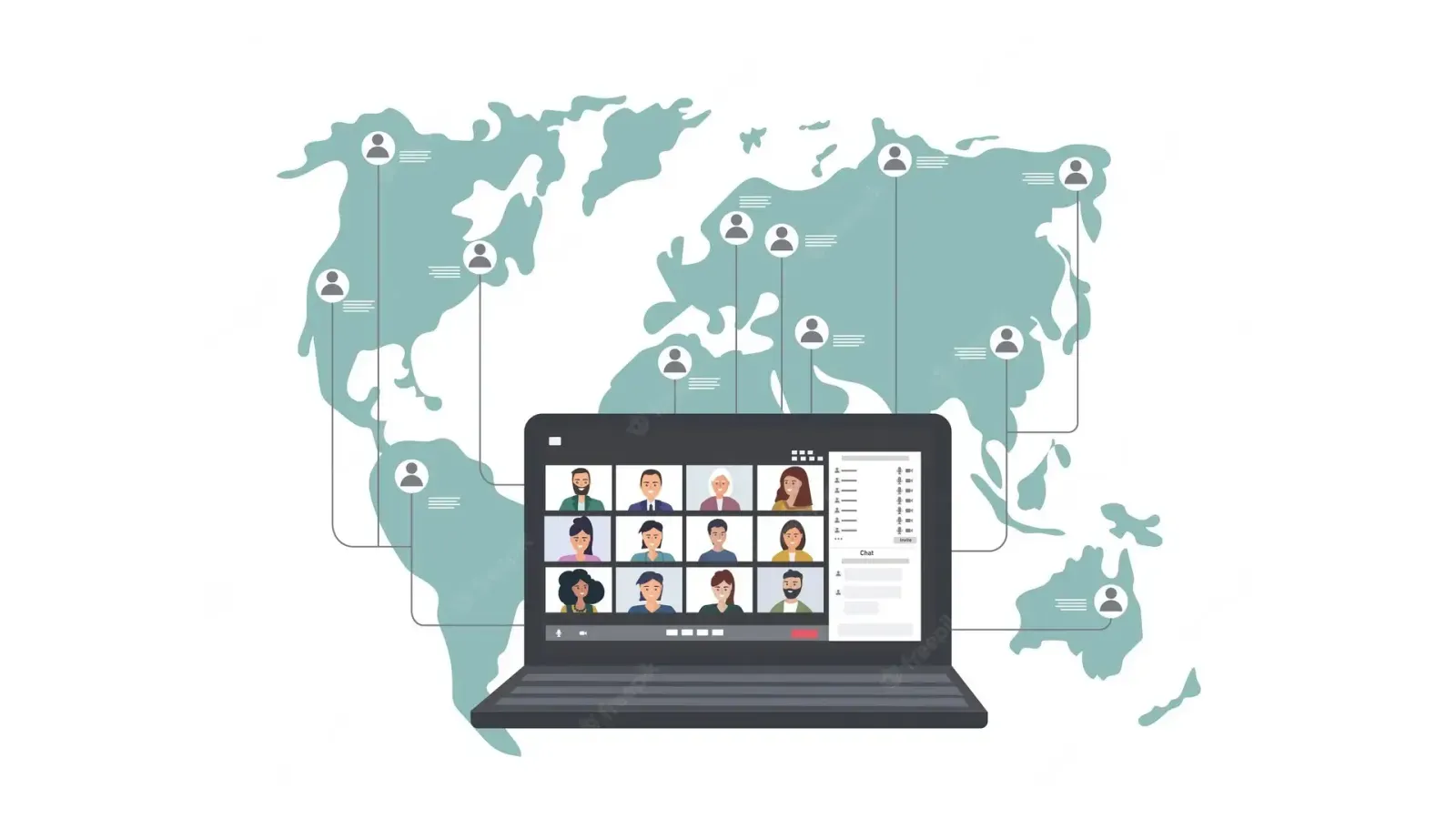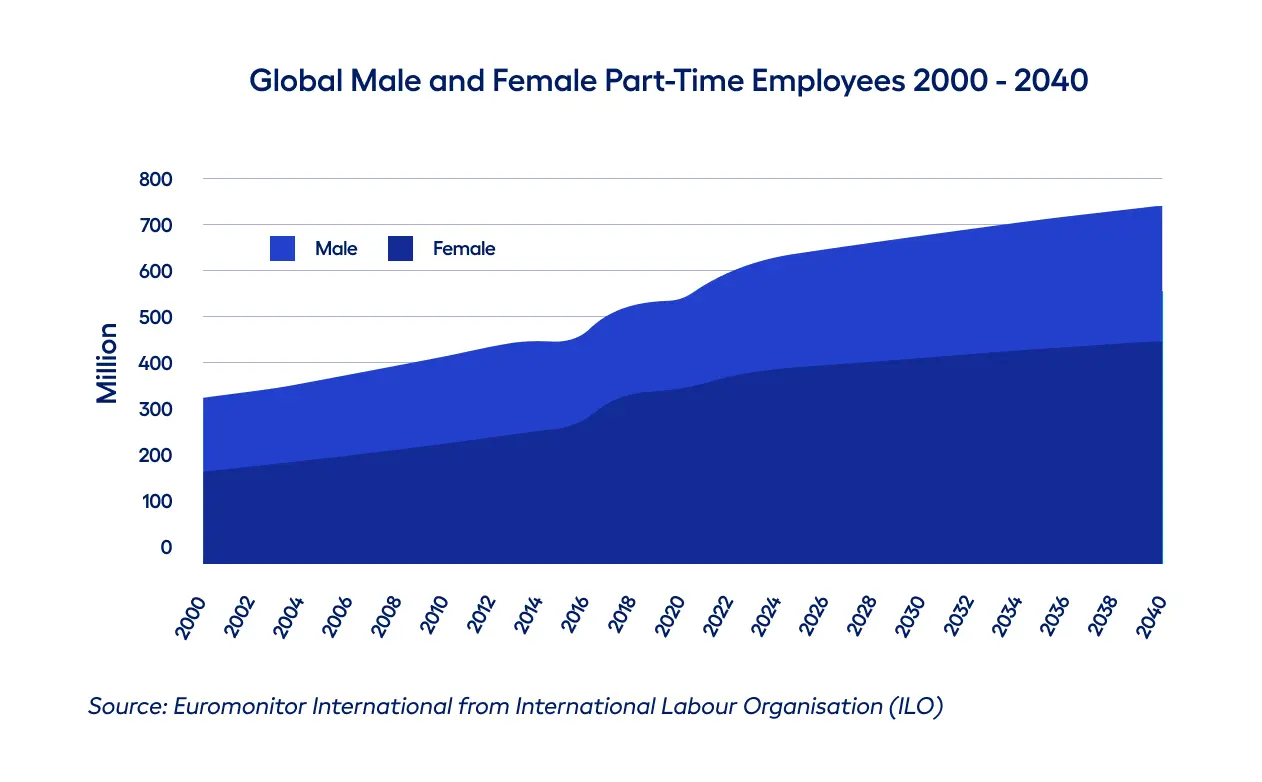Recent technological advancements have enabled the labor market to expand dramatically as well. The biggest beneficiaries are people who would otherwise have less access to traditional jobs and are less capable of accepting standard work arrangements. This has fueled the rise of the gig economy, particularly popular among millennials who prefer flexible work schedules and a work-life balance.
A recent study from the employment website Indeed upholds this statement and reports that the global job listings with a remote component have nearly tripled since the onset of the pandemic, from an average of just 2.5 percent in January 2020 to almost 7.5 percent in September 2021!
Similarly, data scientists at Ladders believe that remote work is here to stay, with around 25 percent of all professional jobs available remotely by the year-end. Ladders CEO Marc Cenedella says, “ This change in working arrangements is impossible to overhype. As big as it is, it’s even bigger than people think.”
This global trend in business dynamism has led to a worldwide struggle and adaption of the concept of a global remote workforce, to which some countries have managed to adapt well.
The True Winners in the New Global Workplace Model
According to the Global Remote Work Index, Germany is the best country for remote work, followed by Denmark and the USA, examined on the basis of multiple attributes contributing to remote work friendliness. These include cybersecurity, digital, and legal infrastructure, as well as the economic and social conditions of the country. Germany was quick to formally cement work-from-home laws, which were implemented in January 2021. The law makes it “mandatory” for employers to offer work from home to their employees provided that there were “no compelling operational reasons for not doing so”. The country also offers a “Freiberufler” or freelancer visa inviting digital nomads worldwide, thus attracting talent from across the world.
Talking about the people in Germany, most Germans who work from home are happy with the way of working as it allows them to balance their time between work and family better. Forsa Research, a German health insurance provider, conducted a survey on employees who had worked from home or away from their office, in which almost 70 percent of the respondents said that remote work helped them balance their personal and professional lives.
Speaking of winners, Denmark comes first amongst the Scandinavian countries because of its flexible and balanced work culture and its impact on people’s productivity. An OECD research discovers that only 2% of Danish employees work long hours, as compared to the OECD average of 11%. Also, owing to the prevalence of family-friendly policies such as a short working week and flexible hours, Danish women work outside the home at a 13% higher rate than the OECD average. With this importance given to a healthy work-life balance, remote work definitely becomes the ideal choice for the Danish way of working.
Besides the cultural front, Denmark also has high-quality digital resources and superior health coverage and is considered a magnet for people who wish to work remotely. The country has unique laws to ensure a safe and healthy work environment for remote workers and obliges the employer to comply with the requirements.
Likewise, the USA is one of the best places in terms of remote work adaptability. A June 2022 McKinsey research found that a remarkable 58 percent of American job holders have the option to work remotely for a whole or at least a part of the week, whereas 35 percent of them can work from home full-time. This data provides a clear view of the significant shift in the country’s way of working. The US Government is also trying to establish permanent flexibility as a part of the huge shift in workplace culture. In June 2021, the federal government authorized all its agencies to offer remote work to all their employees. What’s more, recent population survey data reveals that remote work is boosting the employment rate for Americans with disabilities. These disruptions signal the positive impact of the growing remote work arrangements, thus making the USA a sought-after place for highly skilled talent to look for flexible work opportunities.
Apart from the places mentioned above, Dubai is becoming an ideal choice for remote workers globally. The UAE government has invested millions of dollars over the last few decades in building infrastructure for remote working, providing it an edge over other countries. For instance, Dubai has well-established smart parking systems and public WiFi and is home to multiple co-working spaces. The country reportedly had the world’s fastest mobile internet speed, with 238.06 Mbps in 2021, thus making it the place of every remote worker’s dream.
While much of the world appears to be rapidly adopting the global workforce concept, this isn’t the case with every nation.
The question is, which countries are still rejecting the notion of a remote workforce?
Read on.
Countries Resisting the Remote Way of Working
Sonia Levillain, Senior Professor at the IÉSEG School of Management and author of the book “Little Toolbox of Remote Management”, says, “French people are, most of the time, reluctant to change”.
According to a joint study conducted by Ifop and the Jean Jaurès foundation, 34% of French people worked remotely on a regular basis during the pandemic, whereas 61% of Germans, 56% of Italians, and 50% of Britons did. The time spent by French people working remotely was also lower than their European counterparts. Such low figures can be explained by the large disparity between upper management, the majority of whom can work remotely, and the other socio-professional categories, most of whom continue to work from the office.
Reluctance to work remotely may also be related to how the French workplace has traditionally operated, with managers feeling a strong need to exert control over their employees. Moreover, social interactions are still an important decision-making tool in the French workplace. Although some amount of hybrid work has made headway in France, the situation is unlikely to change anytime soon since the French are famously known for their unwillingness to change.
On a similar front, Japan is a poor candidate for remote work due to the ever-lasting culture of “presenteeism”. Many Japanese fear a lack of career advancement if they do not work long hours at the office. A 2020 study by economist Toshihiro Okubo says that the productivity of Japanese employees dropped by 20 percent when they were forced to work from home amidst the pandemic. In addition, it is worth noting that mentorship is valued in the Japanese workplace. Senior members are frequently tasked with monitoring younger peers, which did not occur as efficiently in a remote setting.
Nevertheless, there are some signs of progress. Fujitsu, for example, last year launched a “Work-Life Shift” program that converted the workplace into a “collaboration hub” for hybrid work. It also helped develop more clearly defined job roles, making remote work easier for its 80,000 Japanese employees.
The Czech Republic is another place that has been quite slow in adapting to the new workplace norms. Even though remote working is becoming more common in most West European countries, Czechs have not fully adopted the flexible method, particularly employers. The country is still struggling to provide proper legal status to remote workers as the law does not specify whether a remote worker is a regular employee; hence, businesses prefer to keep away from remote work due to legal uncertainty.
The Final Word
Globally, there has been an evident shift in the ability to get work done outside a conventional office setting, with many white-collar workers logging in from home after learning how to manage work better remote arrangements during these unprecedented times. So, while only some countries are as enthusiastic about remote work as Germany, or the United States, hybrid and remote work trends are here to stay.
Companies worldwide are now weighing each model’s benefits and drawbacks, deciding which aspects best suit their respective cultures. Countries such as France and Japan may have been slower to adapt to the latest work model; still, modern businesses are now striving to make remorse work a norm there as well, suggesting that it is only a matter of time before the norms begin to change.








